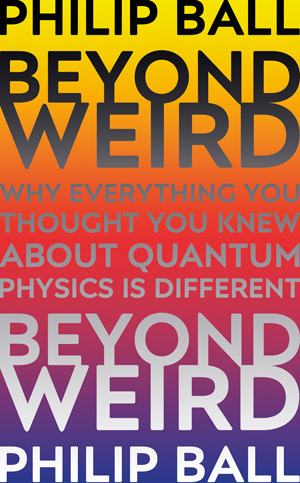 Why Everything You Thought You Knew About Quantum Physics Is Different by Philip Ball
Why Everything You Thought You Knew About Quantum Physics Is Different by Philip Ball
“I think I can safely say that nobody understands quantum mechanics.”
Richard Feynman wrote this in 1965 – the year he was awarded the Nobel prize in physics for his work on quantum mechanics.
Quantum physics has come to be regarded as one of the most obscure and impenetrable subjects in all of science. But when Feynman said he didn’t understand quantum mechanics, he didn’t mean that he couldn’t do it – he meant that’s all he could do. He didn’t understand what the equations were saying: what quantum mechanics tells us about reality.
The enigma of quantum mechanics hasn’t lessened, but over the past decade or so it has come into sharper focus, making its old clichés less useful. We now realise that quantum mechanics is less a theory about particles and waves, uncertainty and fuzziness, than a theory about information: about what can be known and how. This has far more disturbing implications than is suggested by our bad habit of describing the quantum world as ‘things behaving weirdly’. It calls into question the meanings and limits of space and time, cause and effect, and knowledge itself.
BUY ON AMAZON
An exhilarating tour of the contemporary quantum landscape, this is a book about what quantum maths really means – and what it doesn’t mean. It offers the first up-to-date, accessible account of the quest to get to grips with the most fundamental theory of physical reality, and to explain how its counterintuitive principles create the world we experience.
Physics World Book of the Year 2018.
An Economist Book of the Year.
A Prospect Book of the Year.
Published by Bodley Head/University of Chicago Press, 2018 – ISBN 978-1-847-92457-5
